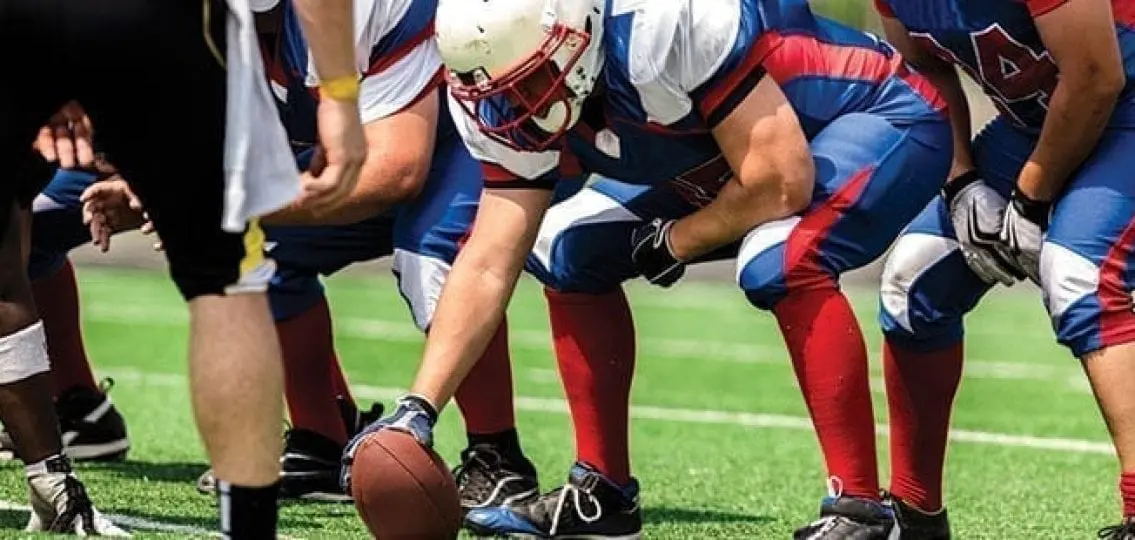If your teen has ever had a concussion, then you know that recovery can be a lengthy process. In 2017, the Concussion in Sport Group, an international panel of concussion experts, released new concussion treatment guidelines. To learn more, Your Teen spoke with Dr. John Leddy, a professor of orthopedics at the University at Buffalo—and one of the co-authors of the new guidelines.
Q: What were the old treatment guidelines for concussions?
Leddy: When an athlete suffered a concussion, they were told to come off the playing field or court as soon as possible, and not return to play for fear of risking even greater injury to the brain. The old guidelines advised patients to see a physician familiar with the treatment of concussions and to rest as completely as possible, remaining in a darkened room with little visual or physical stimuli, until all symptoms had gone away.
The practical interpretation of these guidelines by physicians across the country was to require all symptoms to be completely gone before the patient could consider returning to structured exercise or to play.
We called this complete rest “cocoon therapy.” No reading, no screens, no hanging out with friends. Kids could be out of school for weeks. Depending upon the particular patient, and the severity of the concussion, it could take several weeks or months for symptoms to calm down.
Q: What were the concerns with cocoon therapy?
Leddy: First, it’s very hard on patients. That level of inactivity, in a dark room, with no light or stimulation and nothing to do can drive you crazy. We also noticed that prolonged inactivity was actually delaying the brain’s recovery. Athletes were not, in fact, getting any better. So instead we studied guided and controlled activity, and assessed their tolerance to exercise at a sub-threshold level. We found that with low levels of activity, and short periods of rest, concussion symptoms resolved more quickly.
Q: What do the new guidelines recommend?
Leddy: The advice now is to have complete rest for a brief period of anywhere from 24 to 72 hours, depending upon the patient and the severity of the injury. After this brief period, patients can resume some limited physical activity, such as walking around the block. Not a return to the sport, of course, but some limited physical activity. This initial period of rest allows the symptoms to calm down. After that initial resting period, the teen can return to their normal activities until they can identify the threshold at which they develop a headache, or feel dizzy, or experience vision problems. When the symptoms return, they can stop or take a short break.
We also ask patients to time themselves and keep track of how long they can go. If they went 15 minutes and then felt a headache, we’ll suggest they walk 10 or 12 minutes the next day and see how they feel. They can try again for 15 minutes the following day. We want to stimulate brain recovery in a controlled way without making symptoms worse.
Q: How do you know when the athlete is actually improving?
Leddy: We have to rely upon athletes themselves to be honest about symptoms. Parents and coaches who know the patient well can corroborate that they are in fact getting better. This is also where a skilled clinician who treats concussions helps, as we perform a physical exam with benchmarks that will prove if they are improving.
Q: When can patients return to school?
Leddy: We recommend returning to school in a staged way, starting with a few hours or a half day. Physicians can give them a note requesting additional time to complete homework and tests, and for permission to put their head down in class and rest if necessary. We recommend that they do their school work in short durations and with frequent breaks, up until the point at which they begin to experience symptoms—and then take a break.
John J. Leddy, M.D., is a professor of Orthopedics and Rehabilitation Sciences at the University at Buffalo Jacobs School of Medicine and Biomedical Sciences, and also Medical Director of the Buffalo Concussion Management Clinic.




